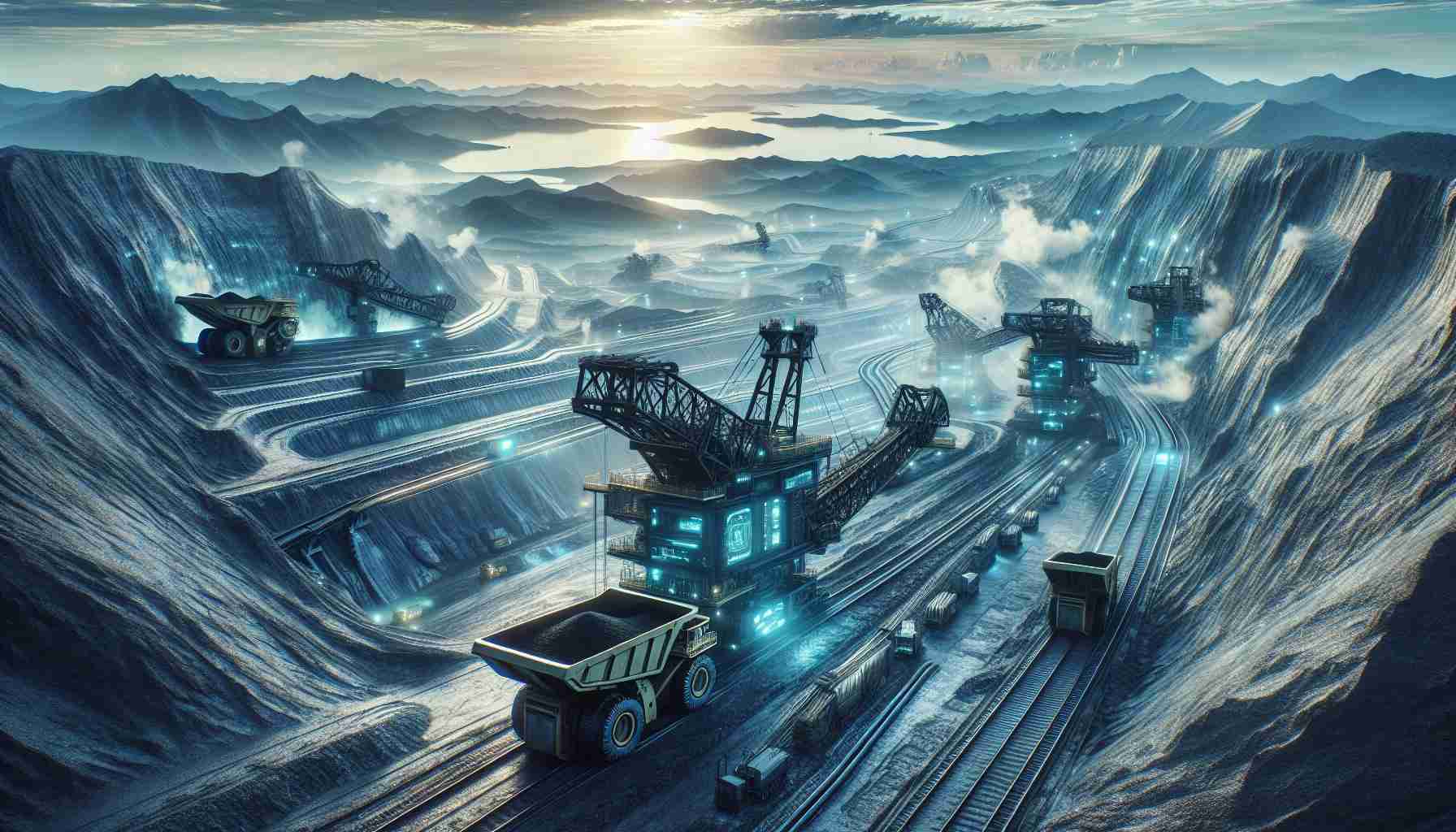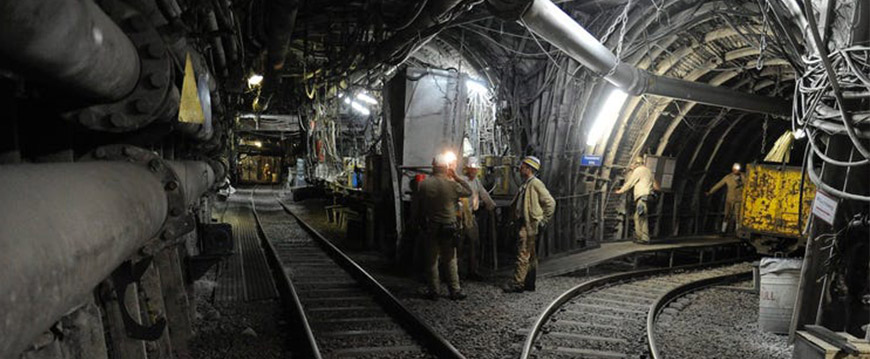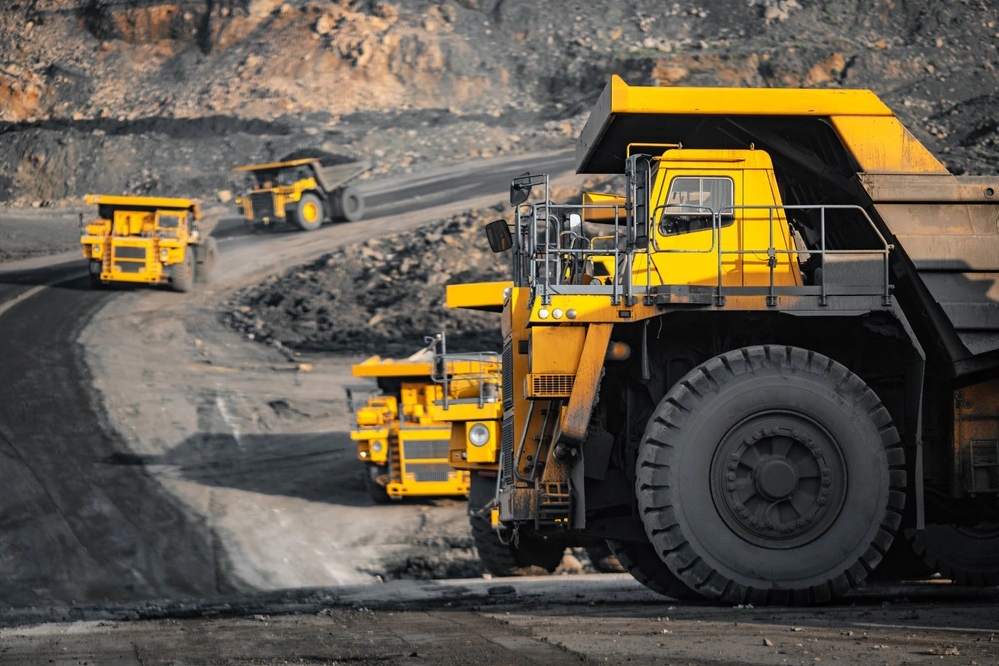The Future of Mining: Revolutionizing Coal Industry with Artificial Intelligence

In April 9, 2024, a groundbreaking advancement took place in a coal mine in North China’s Shanxi province. As a 1.5-meter-long drill pipe made its way towards a coal bed, a control center 500 meters away displayed real-time pictures and data collected by the drill pipe. This cutting-edge technology, powered by artificial intelligence (AI), is revolutionizing the coal mining industry.
Drilling, a crucial step in underground coal mines, can now be automated with the help of AI. Wen Haiming, the chief engineer at the Shanxi Chengfeng Coal Industry Company, highlights the significance of this development, stating, “Drilling is automatic with artificial intelligence.” The integration of AI into mining operations ensures enhanced safety measures and prevents water-related accidents.
Intelligent mining facilities, utilizing AI, have paved the way for video monitoring and sensor-based exploration and drainage. Wang Yu, the deputy general manager of Jingying Shuzhi Technology Co, explains that AI drastically improves the quality of drilling and construction, providing valuable support to underground mining operations.
The coal mining industry is inherently high-risk, and in recent years, China has been focusing on the intelligent transformation of its coal mines by harnessing the power of AI. As of January, Shanxi had successfully built 118 intelligent coal mines, with many more on the horizon.
One notable example is the Mataihao coal mine in North China’s Inner Mongolia autonomous region. In 2022, the mine installed an intelligent monitoring and management system, combining AI recognition and industrial operations technology. This innovative system optimizes the mine’s transport capacity in real-time and enables intelligent speed control.
The integration of AI has produced remarkable results. Nie Helei, a member of the mine’s electromechanical transport team, highlights the system’s success in reducing electricity and equipment loss, while achieving balanced and flexible operations regardless of the coal extraction volume. The system is estimated to reduce electricity consumption by 2 million kilowatt-hours annually, resulting in significant cost savings.
However, the complex geological structures and varying conditions of underground coal mines present unique challenges for AI implementation. To address this, a group of coal mining enterprises in Shanxi have established an integrated industrial internet platform with a large AI model at its core.
This platform stores data from over 400 coal mines, facilitating AI research and development by providing a vast amount of coal mine application scenario data and large AI model training services. Wang Hui, the general manager of Shanxi Jinyun Interconnection Technology Co, emphasizes that this integrated platform has lowered the threshold for AI innovation and product development, enabling quick generation of intelligent products and fostering continuous iteration and innovation.
-
Ensuring reliable long-distance critical signal delivery in mining applications
In mining applications, coal-carrying conveyor belts can be up to 20 km long and···
-
EBRD to Support Modernization of Kazakhstan’s Mining Sector
Kazakh Minister of Industry and Construction Kanat Sharlapayev and First Vice Pr···
-
Wide Strip Mining to Balance Efficiency and Safety in Coal Extraction
BackgroundThe current landscape of coal mining presents significant challenges w···
-
U.S. Critical Mineral Worker Shortage Hurts Competition With China
As the United States rushes to develop domestic supplies of critical minerals—th···
Exhibition address:China International Exhibition Center (CIEC)
- Ensuring reliable long-distance critical signal delivery in mining applications
- EBRD to Support Modernization of Kazakhstan’s Mining Sector
- Wide Strip Mining to Balance Efficiency and Safety in Coal Extraction
- U.S. Critical Mineral Worker Shortage Hurts Competition With China
- Mining industry welcomes government's $566m commitment to resource exploration
- Innovation heats up the mining industry






 2024 Beijing International Coal & Mining Exhibition
2024 Beijing International Coal & Mining Exhibition

